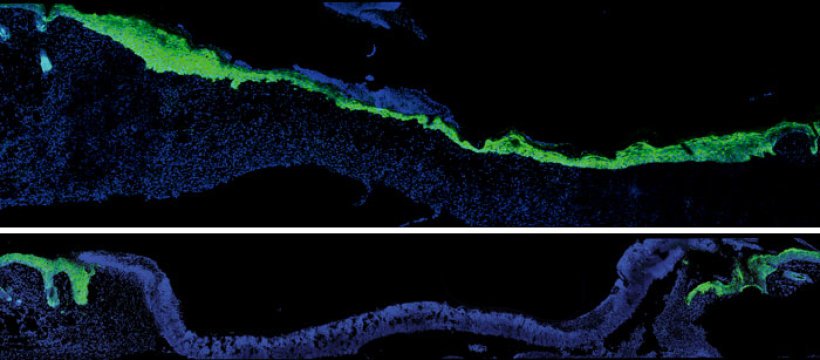Older bodies need longer to mend. This reality of aging has been documented since World War I, with the observation that wounds heal slower in older soldiers. Yet until now, researchers have not been able to tease out what age-related changes hinder the body's ability to repair itself.
Recent experiments at The Rockefeller University explored this physiological puzzle by examining molecular changes in aging mouse skin. The results, described November 17 in Cell, delineate a new aspect of how the body heals wounds.
"Within days of an injury, skin cells migrate in and close the wound, a process that requires coordination with nearby immune cells. With aging, disruptions to communication between skin cells and their immune cells slow down this step. Discovery suggests new approaches to developing treatments that could speed healing among older people.
Whenever a wound occurs, the body needs to repair it quickly to restore its protective skin barrier. Wound healing is one of the most complex processes to occur in the human body. Numerous types of cells, molecular pathways, and signaling systems go to work over timescales that vary from seconds to months. Changes related to aging have been observed in every step of this process. Both skin cells and immune cells contribute to this elaborate process, which begins with the formation of a scab. New skin cells known as keratinocytes later travel in as a sheet to fill in the wound under the scab.
